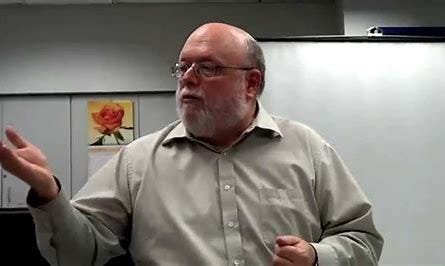One of my favorite philosophers/writers/thinkers/people, Dr. Keith Parsons, once again favors us with a great guest essay, and, as always, I’m grateful.
Dr. Parsons
JUDGING THE RELIGIOUS RECORD
Is religion good or bad? This question cannot be given a meaningful answer. What do we mean by “religion?” “Good” or “bad” in what senses? Such utterances, vague to the point of vacuity, fail to frame a legitimate issue, and serve only to prompt emotional responses. As such, they function only to inflame or obscure.
We can focus by considering only the major religious traditions, the ones that are followed by millions and account for the majority of religious people today. These would be the Abrahamic religions, Judaism, Christianity, and Islam, and the two most prominent eastern religions, Hinduism and Buddhism. We may then ask whether, throughout their history, these religions have overall been to the benefit or detriment of humanity. Did they predominately promote learning, kindness, charity, tolerance, and peace, or ignorance, cruelty, privilege, persecution, and strife?
Defenders of religious traditions will immediately raise the objection that those who killed and persecuted in the name of their religion were not true believers, but unbelievers who cynically appealed to religion to drape a mantle of legitimacy over their atrocities. True adherents always promote love, kindness, acceptance, etc. Thus, I have heard many Muslims insist that Islam is a religion of peace, and that those who commit mayhem while shouting “God is great!” are not genuine Muslims but imposters who have no understanding of the true nature of Islam.
The problem with such a ploy is that it turns the claim “My religion is good” into a tautology. If you are allowed to cherry pick the instances in which your religion did good things and count only those as examples of “true” religion, then, of course, “true” religion is always good! But anything could be excused this way. A real asshole could claim that his “true self” is gentle, kind, and considerate and that when he is being an asshole he is acting out of character.
Can true Christians support bad things and sincerely justify them in the name of their Christian beliefs? Sure. If St. Augustine and St. Thomas Aquinas were not true Christians, then nobody is. Both held that heretics should be treated violently. Augustine said that the civil authorities should use force to compel heretics to return to the orthodox fold. In his mercy, he did recommend against using the atrocious tortures of the day and said that beating heretics with rods should be sufficient. Aquinas was much sterner. He noted that murderers only kill the body, but that heretics can lead the immortal soul into eternal damnation. If we execute murderers, then heretics are much more deserving of death. Impeccable logic.
Saint Augustine of Hippo (354-430 CE); by Philip de Champaigne
Saint Thomas Aquinas (1225-1274 CE0; by Carlo Crivelli
Indeed, scripture itself notoriously celebrates violence, massacre, even genocide. Persecutors do not have to look far to find passages that justify their enormities. Apologists have contorted themselves into logical and ethical knots trying to excuse these biblical passages, but to no avail. Honest believers admit that the biblical writers, being human, were subject to feelings of hate and vindictiveness and allowed the bad angels of their nature to intrude into their writing.
To get to the point, the history of the major religious traditions is a very mixed bag. Religion has motivated the best and the worst of human actions. Atheists are deeply moved by the best religious art and music. Anton Bruckner was an intensely devoted Catholic, and his music is deeply imbued with his religious passion. I am a great admirer of his symphonies and his sacred choral works, such as the Te Deum. His music does not achieve the supreme perfection of Brahms or Mozart, but it has lyrical beauty, elemental power, and spiritual depth. Catholicism, a doctrine that I find multifariously repellent, inspired Bruckner with an artistic vision and voice that can be universally admired, even by atheists.
So, great art, great music, and many acts of kindness and selfless devotion have been inspired by religion. However, it would be dishonest (“bad faith” in every sense) to try to evade the glaring fact that many of the worst people and greatest atrocities have also been motivated by religion. Here again, though, apologists have a quick answer. They say that to speak of “religious” violence implies that there is a separable element called “religion” that can be regarded as distinct from cultural or political influences. However, for past cultures and many in the present day, there is no such distinction. What we separately identify as “religion” was for them all part of a seamless fabric, interwoven with threads that we would now identify as “cultural” or “political.” Thus, the attempt to identify historical instances of specifically “religious” violence is anachronistic and confused. Such an analysis imposes interpretive categories that were alien to the societies examined.
Despite its air of sophistication, this objection is specious. The classical Greeks had no word for “religion.” The idea of a separation between “church” and “state” would have been incomprehensible for them. Temples were public buildings and maintained by the state. Religious festivals were also civil holidays. If you were a citizen of Athens, you were automatically enrolled in the Athenian “church.” Yet these facts do not and should not prevent us from speaking meaningfully and insightfully about religion in classical Greece. Of Course historians, sociologists, and anthropologists employ concepts, categories, and distinctions that were unknown to the the societies they study. How could they not? Their justification in invoking such concepts is not whether those other societies understood themselves in those terms but whether we thereby understand them better.
The Greeks may have had no word for “religion,” but we can still quite legitimately examine their worship, practices, beliefs about the gods, etc. Likewise, when imams preach jihads and ayatollahs issue fatwas, when popes preached crusades, when Martin Luther hysterically condemned Jews, when inquisitors rooted out “heresy” with torture and murder, and when Christians and Muslims went to war, with each side inveighing against the “infidel,” we can legitimately speak of religious violence, recognizing that religious rancor was only part of a witch’s brew of motivations and incitements to violence.
Often, conflict is not created by religion, but religion acts as the high-octane accelerant that turns smoldering resentments into violent conflagrations. Also, when you are convinced that God hates the same people you do (e.g., gays, liberals, feminists, atheists, and Democrats), you can hate cheerfully and with a free conscience.
The upshot is that religion is neither all good nor all bad, but, like human beings themselves, a maddeningly complex admixture. Religion is neither angelic nor demonic, but human; all too human. The lesson for religious apologists is this: You cannot expunge the bad stuff about your religion. You can create confusion by smearing the dark blots, but you cannot erase them. The message to zealous atheists is this: Take a deep breath and realize that religion is not going away. Work with like-minded religious people (and there are plenty of them) to strengthen the good things about religion and campaign against the bad.
Note: Anyone may copy and publish what I or my guests write, provided proper credit is given, that it’s not done for commercial purposes, that I am notified of the copying (you can just leave a comment saying where the copy is being published), and provided that what any of us write is not quoted out of context or distorted.






Wow! As a non-believer myself, I'd say this is the best discussion of this issue I've ever come across. Much more helpful and reasonable than simply rhyming off all the evils committed by religious people and declaring that this proves religion is always bad. I really appreciate this blog.